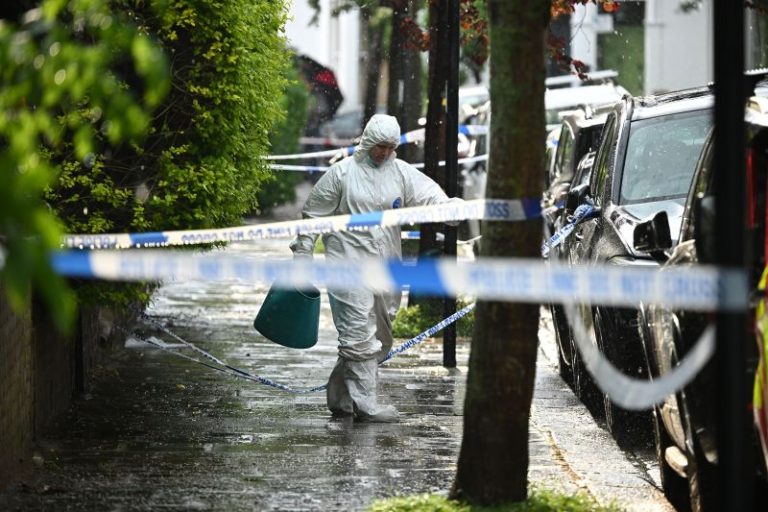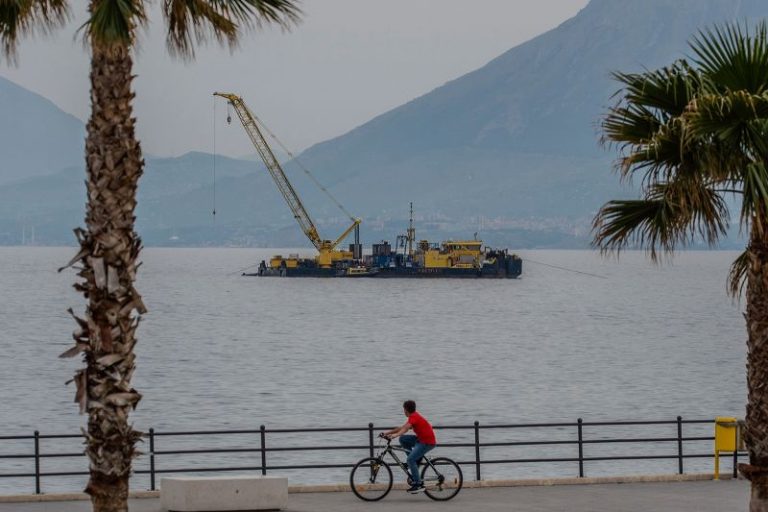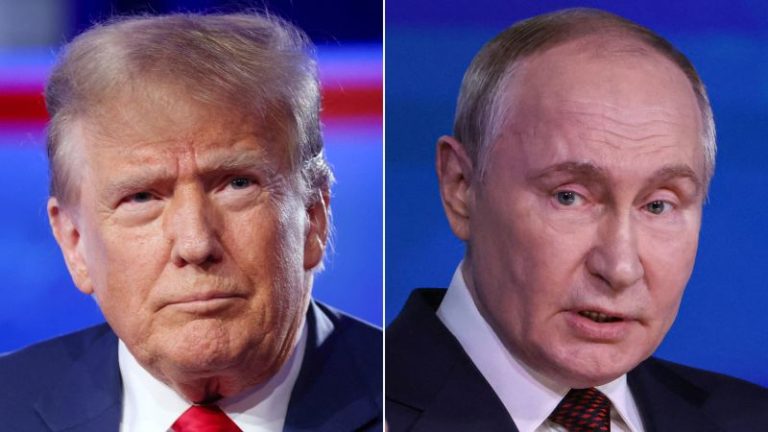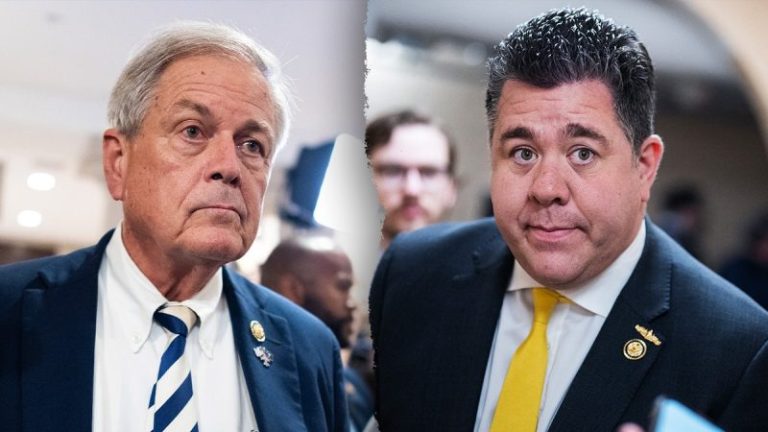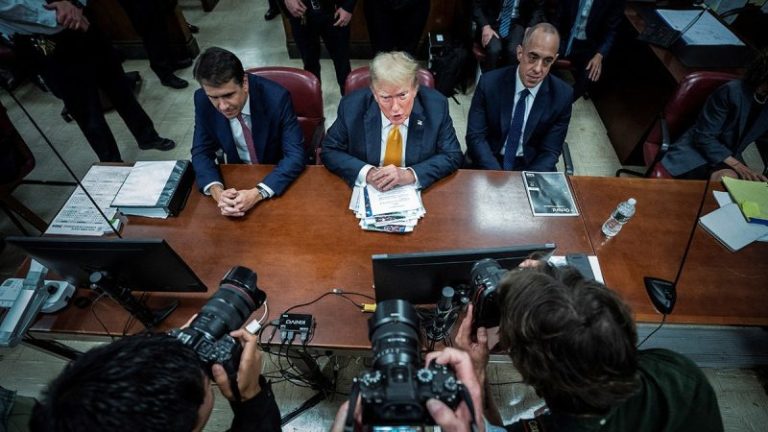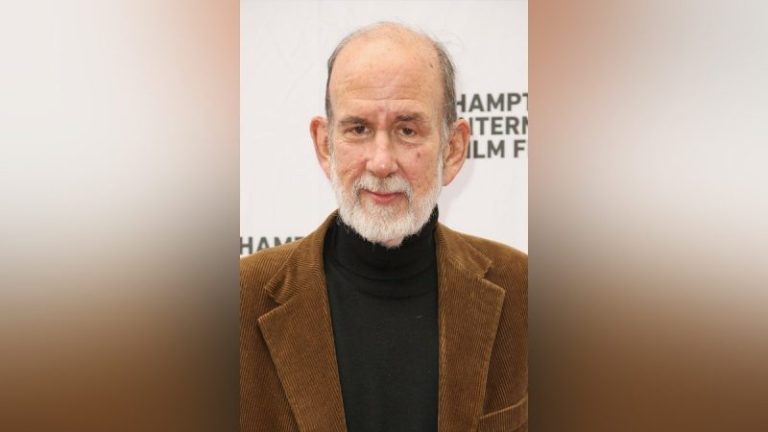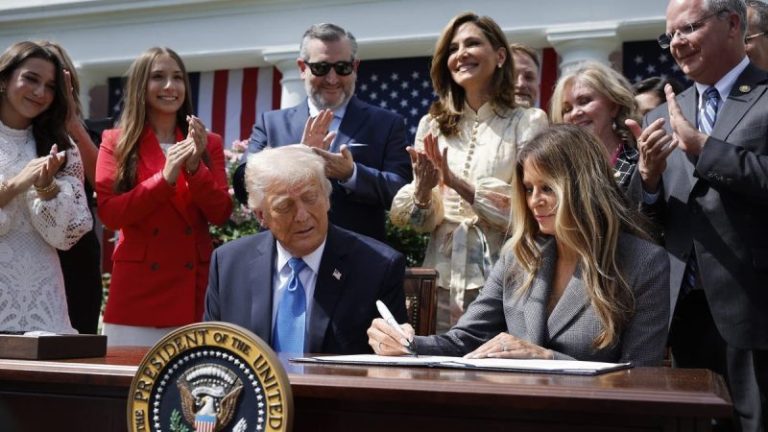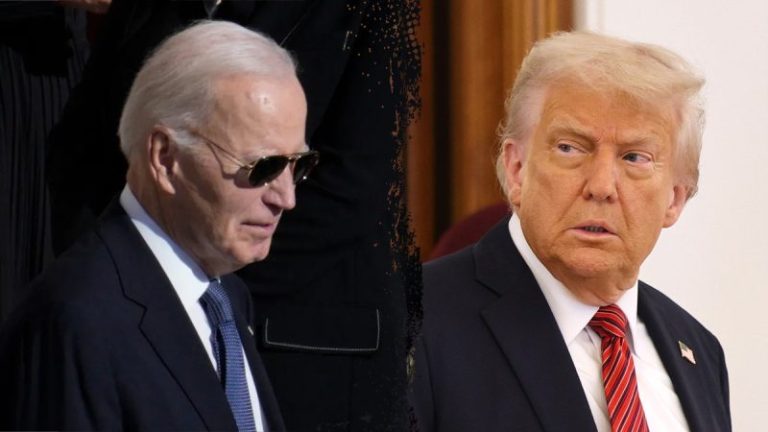President Donald Trump said the cooperation he witnessed to get the Take It Down Act into law was one of the greatest moments of bipartisanship he has seen.
The president signed the bill, which punishes internet abuse involving nonconsensual, explicit imagery, during an outdoors ceremony in the White House Rose Garden Monday afternoon, joined by first lady Melania Trump, who has been championing the issue since her husband’s inauguration.
‘This legislation is a powerful step forward in our efforts to ensure that every American, especially young people, can feel better protected from their image or identity being abused through non-consensual, or intimate imagery of NCII,’ the first lady said from the rose garden Monday afternoon. ‘Artificial intelligence and social media at a digital candy for the next generation,’ she added. ‘Sweet, addictive and engineered to have an impact on the cognitive development of our children. But unlike sugar, these new technologies can be weaponized to shape beliefs, and sadly affect emotions and even be deadly.’
Trump reiterated the importance of the new legislation during the signing ceremony Monday afternoon from the White House. He also touted ‘a level of bipartisanship’ he’s never seen before to get the legislation across the finish line, citing the work of the first lady as a big catalyst.
‘We’ve shown that bipartisanship is possible,’ Trump said shortly before he signed the new act. ‘I mean, it’s the first time I’ve seen such a level of bipartisanship, but it’s a beautiful thing to do. I’m not even sure you realize, honey, you know, a lot of the Democrats and Republicans don’t get along so well. You’ve made them get along, and she didn’t even know about that. She didn’t know we had a problem. She didn’t know we had a problem. She got it.
The Take It Down Act is a bill introduced in the Senate by Sens. Ted Cruz, R-Texas, and Amy Klobuchar, D-Minn., that would make it a federal crime to publish, or threaten to publish, nonconsensual intimate imagery, including ‘digital forgeries’ crafted by artificial intelligence. The bill unanimously passed the Senate in February, and passed in the House of Representatives in April with a vote of 409–2.
The law would require penalties of up to three years in prison for sharing nonconsensual intimate images — authentic or AI-generated — involving minors and two years in prison for those images involving adults. It also would require penalties of up to two and a half years in prison for threat offenses involving minors, and one and a half years in prison for threats involving adults.
The bill requires social media companies, like Snapchat, TikTok, Instagram and similar platforms, to put procedures in place to remove such content within 48 hours of notice from the victim.
AI-generated images known as ‘deepfakes’ often involve editing videos or photos of people to make them look like someone else by using artificial intelligence. Deepfakes hit the public’s radar in 2017 after a Reddit user posted realistic-looking pornography of celebrities to the platform, opening the floodgates to users employing AI to make images look more convincing and widely shared in the following years.
Right now, nearly every U.S. state has a law protecting people from nonconsensual intimate image violations, but the laws vary in classification of crime and penalty.
In March, the first lady spoke on Capitol Hill for the first time since returning to the White House to participate in a roundtable with lawmakers and victims of revenge porn and AI-generated deepfakes.
The first lady invited 15-year-old Elliston Berry, whose high school peers used AI to create nonconsensual imagery of her and spread them across social media.
‘It’s heartbreaking to witness young teens, especially girls, grappling with the overwhelming challenges posed by malicious online content, like deepfakes,’ Trump said. ‘This toxic environment can be severely damaging. We must prioritize their well-being by equipping them with the support and tools necessary to navigate this hostile digital landscape. Every young person deserves a safe online space to express themselves freely, without the looming threat of exploitation or harm.’
Berry, a Texas native, told the roundtable she was just 14 years old when she realized in 2023 that ‘a past Instagram photo with a nude body and my face attached made from AI,’ was circulating on social media.
‘Fear, shock and disgust were just some of the many emotions I felt,’ Berry said. ‘I felt responsible and began to blame myself and was ashamed to tell my parents. Despite doing nothing wrong. As I attended school, I was scared of the reactions of someone or someone could recreate these photos.’
‘We need to hold big tech accountable to take action,’ the young woman continued. ‘I came here today to not only promote this bill, but to fight for the freedom of so many survivors, millions of people, male, female, teenage children, kids all are affected by the rise of this image-based sexual abuse. This is unacceptable. The Take It Down act will give a voice to the victims and provide justice.’
Another young girl, Francesca Mani of New Jersey, recounted that she also was just 14 when she and other peers found deepfake images on themselves online.
‘Teenagers might not know all the laws, but they do know when something is wrong,’ Mani said. ‘Schools need to take immediate, serious action to ensure that AI exploitation, harassment and deepfake abuse are met with real consequences.’
The first lady invited the young women as her special guests for Trump’s first address to a joint session of Congress in March.
Sharing nonconsensual and AI-generated explicit images on social media and the internet has not just affected young girls, as young boys and adults also face similar crimes. A woman named Breeze Liu told the roundtable that she worked tirelessly to remove AI-generated images of herself that landed on a pornography site in 2020 when she was 24 years old.
And Republican South Carolina state Rep. Brandon Guffey also joined the group of lawmakers and the first lady in March, recounting how his 17-year-old son committed suicide in 2022 after he was caught up in a sextortion scam.
‘I lost my oldest son, Gavin Guffey, to suicide,’ he shared. ‘We quickly found out that he was being extorted online. That someone pretending to be a young female at another college requested images to be shared back and forth. And as soon as he shared those images, he took his life. It was an hour and 40 minutes from the time that he was contacted until the time that he took his life.’
Meanwhile, during the first Trump administration, Melania Trump hosted virtual roundtables on foster care as part of her ‘Be Best’ initiative and focused on strengthening the child welfare system. The ‘Be Best’ initiative also focused on online safety.
‘As first lady, my commitment to the ‘Be Best’ initiative underscores the importance of online safety,’ she said. ‘In an era where digital interactions are integral to daily life, it is imperative that we safeguard children from mean-spirited and hurtful online behavior.’
The first lady, in March, said the bill ‘represents a powerful step toward justice, healing and unity.’
This post appeared first on FOX NEWS


